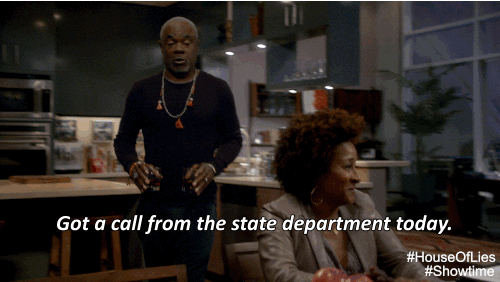
Title: The State Department’s Decision to Revoke Colombian President Gustavo Petro’s Visa – A Deep Dive into the Implications and Historical Context The recent decision by the United States State Department to revoke the visa of Colombian President, Gustavo Petro, has sparked a wave of debate and discussion. The move comes after Petro was accused of urging U.S. soldiers to disobey orders during remarks made at a pro-Palestinian rally in New York. In this blog post, we will delve into the historical context surrounding this decision, analyze its potential implications, and share our perspective on its significance. Historical Context: The relationship between Colombia and the United States has been complex over the years. While both countries have shared interests such as combating drug trafficking and terrorism, there have also been instances of tension and disagreement. This decision by the State Department can be seen in light of this historical context. It is not the first time that a foreign leader’s visa has been revoked due to perceived anti-American sentiments or actions. Potential Implications: The implications of this decision are far-reaching and multifaceted. On one hand, it could potentially strain relations between Colombia and the United States, leading to diplomatic tensions and a breakdown in communication. This could have serious consequences for both countries, particularly given their shared interests in combating drug trafficking and terrorism. On the other hand, this decision may also serve as a wake-up call for foreign leaders who might be tempted to make anti-American remarks or take actions that undermine U.S. interests. It sends a clear message that such behavior will not be tolerated by the United States government. Analysis: The State Department’s decision to revoke Petro’s visa is based on his alleged incitement of U.S. soldiers to disobey orders during remarks made at a pro-Palestinian rally in New York. While it is unclear whether these comments were intended as direct calls for insubordination, the fact that they were made by a foreign leader in front of an American audience has raised concerns about their potential impact on U.S. military morale and discipline. Perspective: In our view, this decision highlights the importance of maintaining diplomatic relations between countries, even when there are disagreements or differences of opinion. While it is essential for foreign leaders to express their views and opinions freely, they must also be mindful of the potential consequences of their actions on international relations. In Petro’s case, his remarks at the pro-Palestinian rally may have been well-intentioned, but they ultimately led to a significant setback in U.S.-Colombia relations. In conclusion, while the State Department’s decision to revoke Colombian President Gustavo Petro’s visa is undoubtedly controversial and has far-reaching implications, it also serves as an important reminder of the delicate balance that must be maintained between freedom of speech and diplomatic relations. As we move forward in this increasingly interconnected world, it will be more crucial than ever for leaders to consider the potential consequences of their actions on international relations before making public statements or taking any other steps that could potentially harm these relationships.
Source: [Original Article](https://www.washingtonpost.com/world/2025/09/27/gustavo-petro-colombia-visa-gaza/)
#state
Check out my AI projects on Hugging Face, join our community on Discord, and explore my services at GhostAI!

